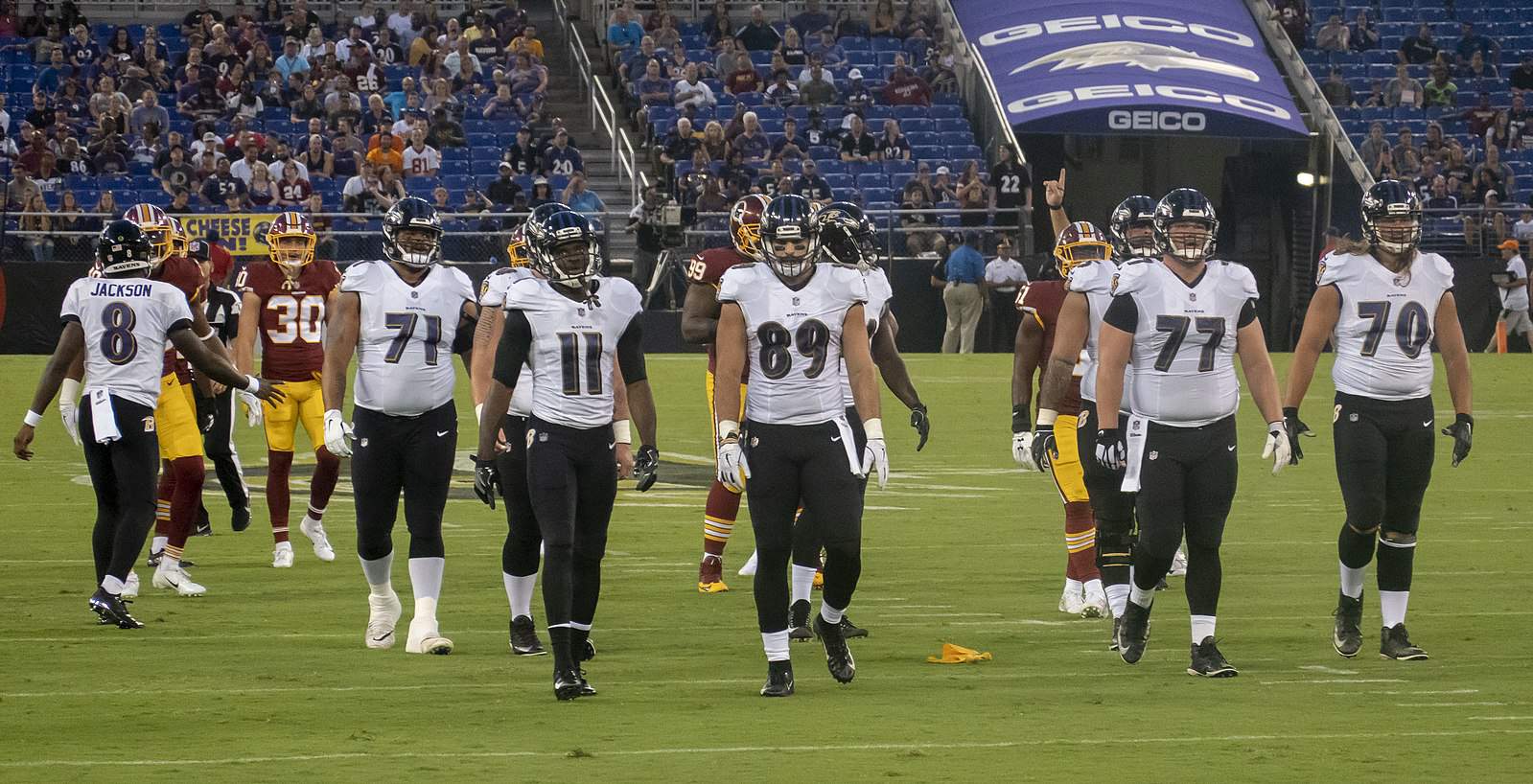
Jon Levitan is a student at Harvard Law School and a member of the Labor and Employment Lab.
The NFL will be playing Wednesday night football this week after the league pushed Tuesday’s game between the Pittsburgh Steelers and Baltimore Ravens – already postponed twice after being scheduled for Thanksgiving due to a COVID outbreak in the Ravens organization – back a day after Ravens players reportedly threatened a wildcat strike if forced to play Tuesday. The Ravens are being forced to play with a skeleton roster because 22 players have either tested positive for COVID or been deemed a close contact to someone who has tested positive; if the game was played Tuesday, they would only be able to dress 38 players (teams typically dress 46). NFL writer Mike Florio writes that the strike, had it been carried out, would “would pull the pin on a potentially complex legal grenade. The NFL would argue that it’s an illegal strike, violating both the CBA and the agreement struck in early August to allow the season to proceed. The NFL Players Association would likely counter by claiming that the delays coupled with the refusal to let the Ravens properly prepare creates a physical safety risk sufficient to justify refusing to play.” The threatened strike would have been the second major wildcat strike to affect American pro sports during the pandemic, after NBA players, confined to a “bubble” in Disney World, struck in August over the killing of Jacob Blake in Kenosha, Wisconsin.
An extensive NBC news report chronicles how Uber’s worker exploitation model is being exported to Kenya. For former driver Harrison Munala, Uber’s arrival in Nairobi offered everything he thought he needed. The pay, the equivalent of almost a dollar a mile, was solid and the work was plentiful enough that Munala decided to stop renting a car to drive in and took out loans to pay for a down payment on a Toyota Passo. He bought a Passo because it met Uber’s relatively high vehicle standards. Soon after, however, Uber unilaterally slashed fares, and with it cut Munala’s income. Adding to his suffering, Uber relaxed its vehicle standards, allowing smaller, more fuel efficient cars to flood the market, just after he borrowed money to buy the larger car. Munala had to sell the car and cut his losses after Uber’s unilateral changes. Uber’s other machinations in Kenya have been particularly horrific: in 2016 Uber set up a loan partnership with a bank, made loans to drivers to lease cars, and then two months later slashed fares, forcing drivers to earn far one-third less than they anticipated when they took out the loans.
Nurses at Albany Medical Center are preparing to go on a 24-hour strike today. Yesterday, their union filed a complaint with OSHA that the hospital was failing to protect workers and patients from COVID. The workers are particularly concerned about the reuse of N95 masks. Nurses say that the hospital is forcing them to disinfect and reuse the masks up to 20 times with different patients. While the CDC condones disinfecting and reusing masks, they recommend only doing so five times because the disinfectant will eventually degrade the mask. The complaint further alleges that the hospital knew the reused masks were dangerous and did nothing to protect workers or patients. Jennifer Bejo, a nurse who plans to go on strike today, said, “Albany Med has abandoned us and the patients for a long time. If you do not take care of the essential workers, of the front line workers that means that you’re also abandoning the patients that those nurses are taking care of. You’re abandoning the community.”
We end today on a sad note: Larry Willis, president of the Transportation Trades Department, AFL-CIO, died yesterday from injuries sustained in a bike accident last week. Sara Nelson, President of the Association of Flight Attendants, called Willis “a relentless advocate for working people,” who “lived his life in service to all of us.” President-Elect Biden paid tribute too, calling him a “relentless champion for working families.” Willis was 53.






Daily News & Commentary
Start your day with our roundup of the latest labor developments. See all
January 22
Hyundai’s labor union warns against the introduction of humanoid robots; Oregon and California trades unions take different paths to advocate for union jobs.
January 20
In today’s news and commentary, SEIU advocates for a wealth tax, the DOL gets a budget increase, and the NLRB struggles with its workforce. The SEIU United Healthcare Workers West is advancing a California ballot initiative to impose a one-time 5% tax on personal wealth above $1 billion, aiming to raise funds for the state’s […]
January 19
Department of Education pauses wage garnishment; Valero Energy announces layoffs; Labor Department wins back wages for healthcare workers.
January 18
Met Museum workers unionize; a new report reveals a $0.76 average tip for gig workers in NYC; and U.S. workers receive the smallest share of capital since 1947.
January 16
The NLRB publishes its first decision since regaining a quorum; Minneapolis labor unions call for a general strike in response to the ICE killing of Renee Good; federal workers rally in DC to show support for the Protecting America’s Workforce Act.
January 15
New investigation into the Secretary of Labor; New Jersey bill to protect child content creators; NIOSH reinstates hundreds of employees.